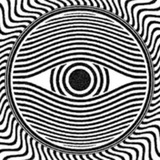There are two books named "consolations of philosophy", one is a philosophy book written in the 6th century by Boethius, a stoic philosopher. The other is a self-help book written by Alain de Botton, an author and public speaker. They both claim that philosophy can help you with your life, so what's the difference between them?
What's the difference between Marcus Aurelius' Meditations, and Ryan Holiday's The Daily Stoic since they both claim to adhere to stoicism?
Why philosophical works and self-help books sometimes feel so similar?
This is because both philosophical works and self-help have the intention of "teaching" one how to live a good life. The aim is similar but the values and definition of a good life are different:
Philosophy generally tries to find virtues and values which can be generalized on almost all humans regardless of time and place. Self-help, on the other hand, has the values of the here-and-now. They are made only for our age. This also explains the difference in durability; a good philosophical work stands against the test of time because it relates to humans regardless of the age or place they live in, while a self-help book will usually only be relevant for a few years (decades at the most).
A self-help book claims to teach you how to get what you desire: money, high social status, or the lover you want. It promises you a hold on whatever is fashionable today. Philosophy, on the other hand, first examines whether what you desire so strongly is actually worth the strife. It's a dose of wisdom and rationality; an antidote for the frenzy of the trending and fashionable. Philosophy challenges your assumptions, expectations, and desires, rather than simply complying to them as self-help does.
A good rule-of-thumb: if a book complies to your presupposed views of the self and the world and your desires, it's self-help. "Commit it to the fire" as David Hume would say. If the book bashes your assumptions and expectations of the world with a hammer and tries to convince you that not all desires are worth pursuing, and that you ought not to follow your heart blindly, then it's a philosophy book.
This is because both philosophical works and self-help have the intention of "teaching" one how to live a good life. The aim is similar but the values and definition of a good life are different:
Philosophy generally tries to find virtues and values which can be generalized on almost all humans regardless of time and place. Self-help, on the other hand, has the values of the here-and-now. They are made only for our age. This also explains the difference in durability; a good philosophical work stands against the test of time because it relates to humans regardless of the age or place they live in, while a self-help book will usually only be relevant for a few years (decades at the most).
A self-help book claims to teach you how to get what you desire: money, high social status, or the lover you want. It promises you a hold on whatever is fashionable today. Philosophy, on the other hand, first examines whether what you desire so strongly is actually worth the strife. It's a dose of wisdom and rationality; an antidote for the frenzy of the trending and fashionable. Philosophy challenges your assumptions, expectations, and desires, rather than simply complying to them as self-help does.
A good rule-of-thumb: if a book complies to your presupposed views of the self and the world and your desires, it's self-help. "Commit it to the fire" as David Hume would say. If the book bashes your assumptions and expectations of the world with a hammer and tries to convince you that not all desires are worth pursuing, and that you ought not to follow your heart blindly, then it's a philosophy book.
Forwarded from Conatus (Zakaria)
the foolishness of a misanthrope lies in the fact that he voices his distaste for man near him, which at bottom shows a disappointed lover of man, if i hate you, what is your bussiness in it, why i ought to let you be a witness of my hatred?
The one who is to be an orator does not need to know what is really just, but what would seem just to the multitudes who are to pass judgement, and not what is really good or noble, but what will seem to be so; for they say that persuasion comes from what seems to be true, not from the truth.
— Plato's Dialogue (Phaedrus)
— Plato's Dialogue (Phaedrus)
Forwarded from Labyrinth
Who hath a harder battle to fight than he who striveth for self-mastery?
(Thomas à Kempis)
(Thomas à Kempis)
In all ages the wisest have always agreed in their judgement of life: it is no good. At all times and places the same words have been on their lips,—words full of doubt, full of melancholy, full of weariness of life, full of hostility to life. Even Socrates’ dying words were:—“To live—means to be ill a long while: I owe a rooster to the god Æsculapius.”
These great sages of all periods should first be examined more closely! Is it possible that they were, everyone of them, a little shaky on their legs, effete, rocky, decadent? Does wisdom perhaps appear on earth after the manner of a crow attracted by a slight smell of carrion?
What? Is it possible that all these great sages were not only decadents, but that they were not even wise?
These great sages of all periods should first be examined more closely! Is it possible that they were, everyone of them, a little shaky on their legs, effete, rocky, decadent? Does wisdom perhaps appear on earth after the manner of a crow attracted by a slight smell of carrion?
What? Is it possible that all these great sages were not only decadents, but that they were not even wise?
